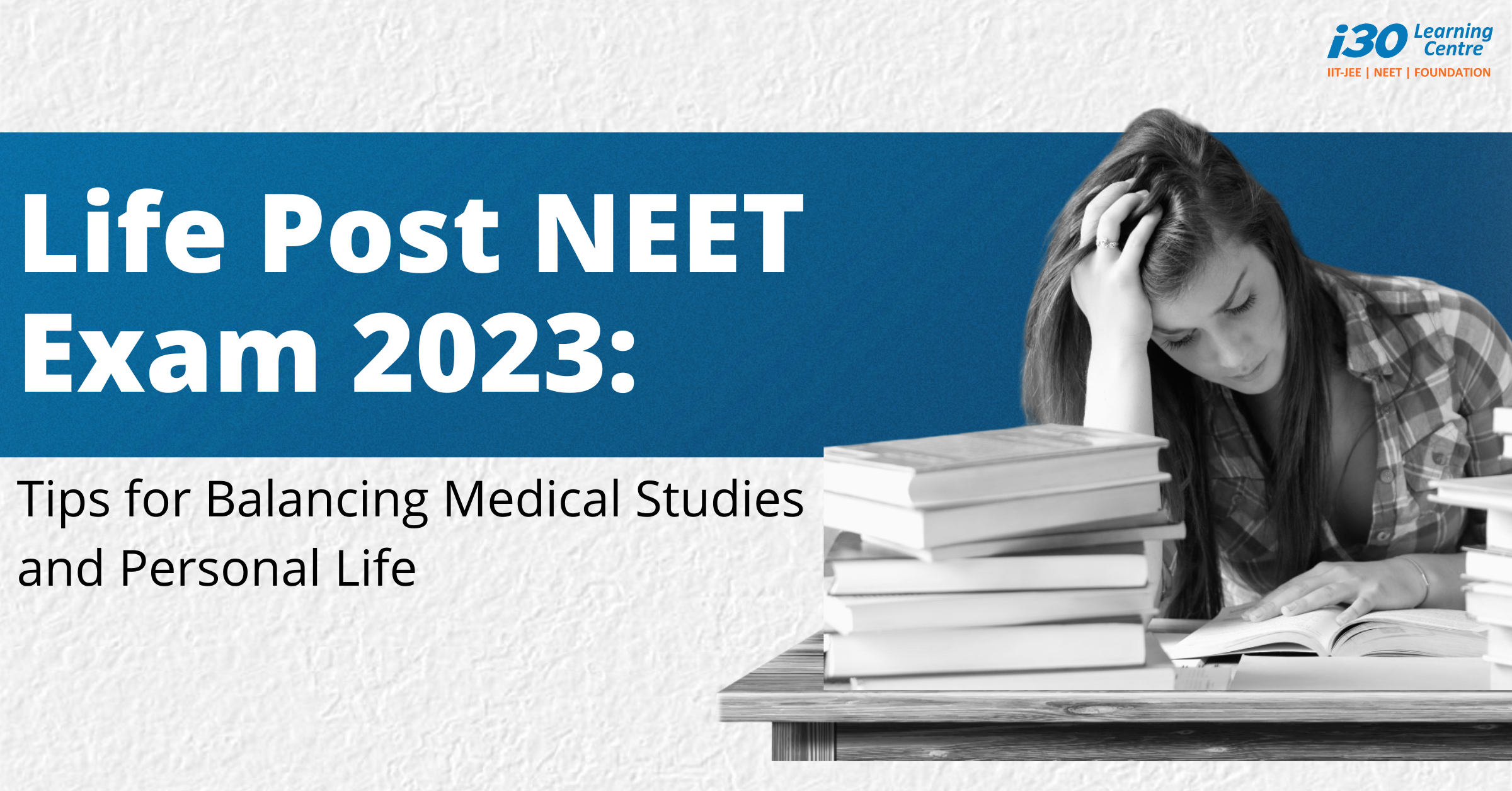Clearing the National Eligibility cum Entrance Test (NEET) and securing admission to a medical college is a significant milestone for aspiring doctors. However, the journey does not end there. Life post NEET exam poses its own set of challenges, especially when it comes to striking a balance between rigorous medical studies and maintaining a fulfilling personal life. In this blog, we will explore some valuable tips to help medical students navigate this demanding phase successfully.
1. Prioritize and Manage Time Effectively:
One of the key aspects of maintaining a healthy balance between medical studies and personal life is efficient time management. Create a schedule that outlines your study hours, breaks, and leisure activities. Set realistic goals and prioritize your tasks accordingly. Allocate specific time slots for studying, socializing, and self-care. By organizing your time effectively, you can avoid burnout and ensure that you have ample time for both your academic and personal pursuits.
2. Embrace Self-Care:
Medical studies can be physically and mentally exhausting, making self-care essential for your overall well-being. Make sure to prioritize activities that promote relaxation and rejuvenation. Engage in regular exercise, practice mindfulness or meditation, and get sufficient sleep. Additionally, maintain a healthy diet and indulge in hobbies or activities that bring you joy. Taking care of yourself will not only improve your focus and productivity but also enhance your personal life.
3. Cultivate a Supportive Network:
Surrounding yourself with a supportive network of friends, family, and fellow medical students can greatly assist in maintaining a healthy work-life balance. Connect with classmates who share similar goals and challenges. Form study groups to exchange knowledge and support each other. Additionally, spend quality time with loved ones and engage in activities that strengthen your relationships. Having a strong support system will provide encouragement during tough times and remind you of the importance of personal connections.
4. Set Realistic Expectations:
It’s important to set realistic expectations for yourself during this phase of your life. Understand that medical studies require a significant amount of dedication and hard work. Recognize that there may be times when you have to prioritize your studies over personal commitments. Be kind to yourself and avoid comparing your progress to others. Embrace the learning process and celebrate small victories along the way. Setting realistic expectations will help reduce unnecessary stress and foster a healthier work-life balance.
5. Effective Study Techniques:
To optimize your study time, adopt effective study techniques that suit your learning style. Experiment with different methods, such as active recall, spaced repetition, and concept mapping, to determine what works best for you. Additionally, make use of technology and online resources that can enhance your understanding of complex topics. By studying efficiently, you can save time and create more room for personal activities.
6. Learn to Delegate and Seek Help:
Recognize that you don’t have to tackle everything on your own. Learn to delegate tasks and responsibilities when possible. If you are struggling with a particular subject or finding it difficult to manage your workload, seek help from professors, mentors, or academic counselors. They can provide guidance and support, helping you overcome obstacles and maintain a healthier work-life balance.
Conclusion
Life after NEET can be demanding, but with the right strategies, it is possible to strike a balance between medical studies and personal life. By prioritizing, managing time effectively, embracing self-care, cultivating a supportive network, setting realistic expectations, adopting effective study techniques, and seeking help when needed, you can navigate this phase with greater ease. Remember, maintaining a healthy work-life balance is crucial for your overall well-being and success in both your professional and personal endeavors.



